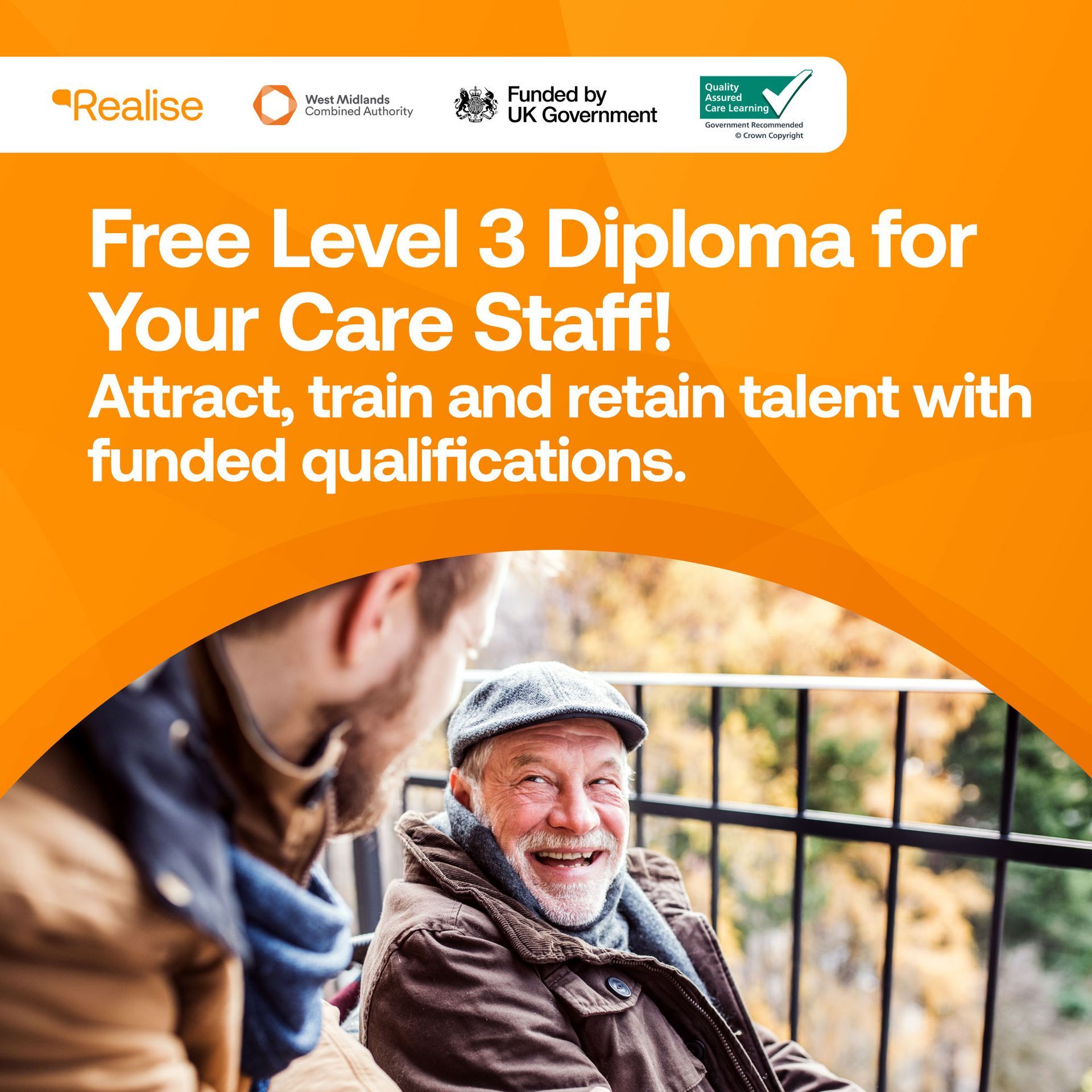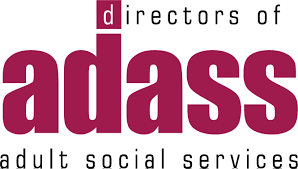Free Level 3 Diploma Qualifications for Your Workforce from our partner,
Realise Training
Did you know you can access fully funded staff training - directly through Realise?
In the midst of a national care worker recruitment crisis, one thing is clear: upskilling your existing workforce isn’t just a good idea - it’s essential. As a national training provider, Realise can deliver the Level 3 Diploma in Adult Care qualification at no cost across the West Midlands, with funding drawn down from the Adult Skills Fund (ASF).
If your care organisation does not receive staff training funding from your local combined authority, Realise can offer you a FREE alternative.
Sound good? Keep reading!
Upskill Your Staff – At No Cost to You
Eligible care staff can now access fully funded training that leads to a nationally recognised Level 3 Diploma. This qualification opens the door to supervisory and leadership roles, giving your team the skills and confidence to take the next step in their career.
Staff need to meet our simple eligibility criteria:
- You must be aged 19 or above
- You must be able to evidence living in England for at least 3 years (not including a student visa)
They will be required to complete a quick functional skills assessment prior to enrolment in order to proceed with the diploma.
Local Training, Real Support
As members of the West Midlands Care Association, we are committed to supporting the region with their staff training needs.
We know how important it is that training is flexible and fits around the demands of day-to-day adult care. That’s why we’ve built a large network of experienced, local trainers across the West Midlands.
Your staff will receive regular face-to-face support from a local trainer with workplace visits and dedicated online sessions, helping them stay motivated, on track, and confident throughout their learning journey.
Quality Assured Level 3
What sets Realise head and shoulders above other training providers is our Quality Assured Care Learning Service approval (QACLS) awarded from Skills for Care.
When training your staff, you want to be assured that the quality of training is relevant to your team, accessible and aligned to the mandatory standards of care. So, when a CQC inspection comes around, you can rest easy knowing that your staff have been trained to a high standard and are fully engaged in what good practice looks like.
Retain Talent, Raise Standards
Now more than ever, the sector is under enormous pressure to recruit and retain quality adult care staff. Workforce turnover in health and social care services in 2023/24 was reduced from 30% to 25% as a direct result of staff training.
Staff who feel invested in are more likely to stay - reducing turnover, boosting morale, and ultimately improving outcomes for the service users that you care for.
Talk to Realise
Growing your own talent makes sense.
Our funded Level 3 Diplomas offer a smart, sustainable way to support your staff, strengthen your service, and plan confidently for the future.
Share

























